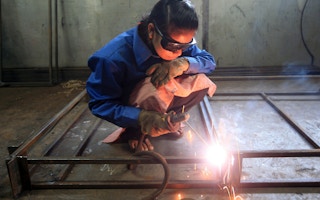Women will have to wait 217 years before they earn as much as men and have equal representation in the workplace, research said, revealing the widest gap in almost a decade.
Women are paid and achieve just over half as much as men in the workplace, the World Economic Forum said, reporting an economic gap of 58 per cent between the sexes.
“In 2017 we should not be seeing progress towards gender parity shift into reverse,” said Saadia Zahidi, WEF’s head of education, gender and work.
“Gender equality is both a moral and economic imperative. Some countries understand this and they are now seeing dividends from the proactive measures they have taken to address their gender gaps.”
It is the second year in a row that the Swiss non-profit has recorded worsening economic inequality, which is calculated by measuring how many men and women participate in the labour force, their earned incomes and their job advancement.
“
Gender equality is both a moral and economic imperative. Some countries understand this and they are now seeing dividends from the proactive measures they have taken to address their gender gaps.
Saadia Zahidi, head of education, gender and work, World Economic Forum
Last year, WEF said women would achieve economic equality in 170 years, down from 118 years in 2015.
No country has closed the pay gap, WEF said, using data from institutions such as the International Labour Organization, United Nations Development Programme and World Health Organisation.
Overall, Iceland, Norway, Finland, Rwanda and Sweden ranked highest among 144 nations measured on progress in equality in four areas: education, health and survival, economic opportunity and political empowerment.
Yemen, then Pakistan, Syria, Chad and Iran, ranked lowest.
Women fared much better in education, where equality could be reached within 13 years, WEF said, while closing the gap in political empowerment could take a further 99 years.
“Even though qualified women are coming out of the education system, many industries are failing to hire, retain and promote them, losing out on a wealth of capacity,” it said.
The report estimated that closing the pay gap could add an extra $250 billion to the GDP of Britain, $1,750 billion to that of the US and $2.5 trillion to China’s GDP.
This story was published with permission from Thomson Reuters Foundation, the charitable arm of Thomson Reuters that covers humanitarian issues, conflicts, land and property rights, modern slavery and human trafficking, gender equality, climate change and resilience. Visit http://news.trust.org to see more stories
Our Standards: The Thomson Reuters Trust Principles.










